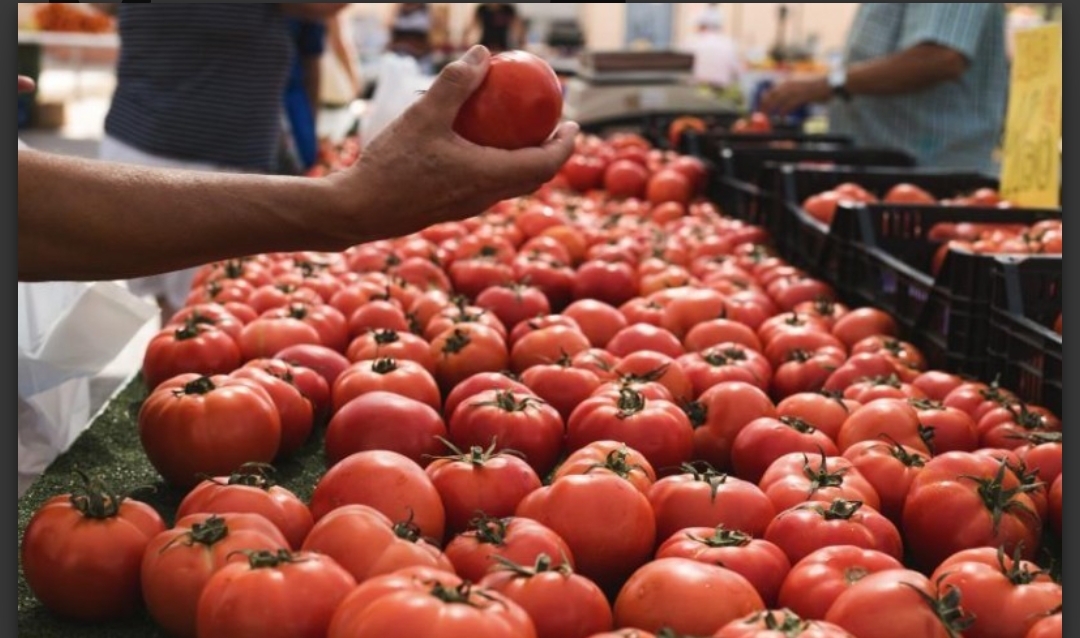Rabat – The European Commission has rejected claims of tax fraud in Moroccan tomato exports to the EU.
The Iberian media outlet, elEconomista, reported that European Commissioner for Agriculture Christophe Hansen addressed the issue in response to a written question from Spanish MEP Carmen Crespo, who raised concerns about Morocco allegedly exceeding its duty-free export limits.
“These imports comply with the terms of the 2012 Association Agreement,” Hansen stated, clarifying that Moroccan tomatoes entering the EU beyond the established tariff quota remain within legal bounds as long as the required customs duties are paid.
Between 2019 and 2024, customs authorities collected around €81 million in duties on these shipments.
Hansen acknowledged that Moroccan tomatoes have been imported beyond the agreed-upon quota since 2019.
However, he also noted that these additional imports follow the rules set by the trade agreement. “Out-of-quota imports are subject to customs duties and therefore comply with the agreement between Morocco and the EU,” he affirmed.
Crespo had urged the European Commission to investigate what she described as a “fraud” caused by duty-free quotas being exceeded.
She estimated the alleged tax losses at more than €71.7 million since 2019. The EU’s response now puts those allegations to rest.
Over the past decade, Morocco has carried its position in the global tomato market, expanding its production by 17,36% between 2014 and 2023.
Output rose from 1.23 billion kilos in 2014 to 1.44 billion kilos in 2023, reinforcing Morocco’s status as a formidable competitor in the European Union.
Moreover, Spanish tomato producers have grown increasingly wary of this competition and see it as a serious threat to their industry.
In February 2024, several farmers in Algeciras, Spain, staged a protest against the import of Moroccan agricultural products.
Some carried banners accusing Morocco of flooding the market with low-quality goods. However, the protest likely reflected broader frustration over what they viewed as unfair competition from non-EU countries.
The Iberian media outlet, elEconomista, reported that European Commissioner for Agriculture Christophe Hansen addressed the issue in response to a written question from Spanish MEP Carmen Crespo, who raised concerns about Morocco allegedly exceeding its duty-free export limits.
“These imports comply with the terms of the 2012 Association Agreement,” Hansen stated, clarifying that Moroccan tomatoes entering the EU beyond the established tariff quota remain within legal bounds as long as the required customs duties are paid.
Between 2019 and 2024, customs authorities collected around €81 million in duties on these shipments.
Hansen acknowledged that Moroccan tomatoes have been imported beyond the agreed-upon quota since 2019.
However, he also noted that these additional imports follow the rules set by the trade agreement. “Out-of-quota imports are subject to customs duties and therefore comply with the agreement between Morocco and the EU,” he affirmed.
Crespo had urged the European Commission to investigate what she described as a “fraud” caused by duty-free quotas being exceeded.
She estimated the alleged tax losses at more than €71.7 million since 2019. The EU’s response now puts those allegations to rest.
Over the past decade, Morocco has carried its position in the global tomato market, expanding its production by 17,36% between 2014 and 2023.
Output rose from 1.23 billion kilos in 2014 to 1.44 billion kilos in 2023, reinforcing Morocco’s status as a formidable competitor in the European Union.
Moreover, Spanish tomato producers have grown increasingly wary of this competition and see it as a serious threat to their industry.
In February 2024, several farmers in Algeciras, Spain, staged a protest against the import of Moroccan agricultural products.
Some carried banners accusing Morocco of flooding the market with low-quality goods. However, the protest likely reflected broader frustration over what they viewed as unfair competition from non-EU countries.

